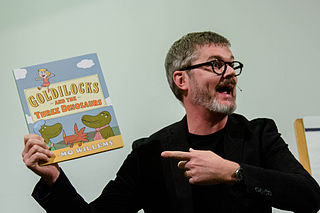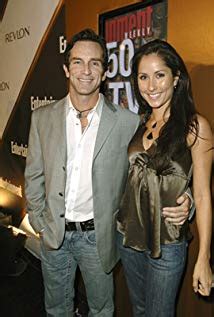A Quote by Nick Harkaway
E-readers are uninspired. They're slabs of plastic with fiddly controls and display a badly-formatted, typographically impoverished rendering of a paper book. That's not the electronic book I want. I want a gorgeous physical object, with paper pages, that can transform into any story I choose, perfectly presented on the page.
Related Quotes
A book is something that young readers can experience on their own time. They decide when to turn the page. They'll put their arm right on the page so you can't turn it because they're not ready to go to the next page yet. They just want to look at it again, or they want to read the book over and over because they really enjoy setting the pace themselves.
A book, being a physical object, engenders a certain respect that zipping electrons cannot. Because you cannot turn a book off, because you have to hold it in your hands, because a book sits there, waiting for you, whether you think you want it or not, because of all these things, a book is a friend. It’s not just the content, but the physical being of a book that is there for you always and unconditionally.
I love the book. I love the feel of a book in my hands, the compactness of it, the shape, the size. I love the feel of paper. The sound it makes when I turn a page. I love the beauty of print on paper, the patterns, the shapes, the fonts. I am astonished by the versatility and practicality of The Book. It is so simple. It is so fit for its purpose. It may give me mere content, but no e-reader will ever give me that sort of added pleasure.
The burning of a book is a sad, sad sight, for even though a book is nothing but ink and paper, it feels as if the ideas contained in the book are disappearing as the pages turn to ashes and the cover and binding--which is the term for the stitching and glue that holds the pages together--blacken and curl as the flames do their wicked work. When someone is burning a book, they are showing utter contempt for all of the thinking that produced its ideas, all of the labor that went into its words and sentences, and all of the trouble that befell the author . . .
I try to weave a secret into each plot. It's the thread that holds the rest of the story fabric together. In fact, it's the reason for the story. I hint at the secret early on. Immediately I want the reader to get the feeling that something here isn't quite right. It helps maintain the suspense if a puzzling element is introduced in the first few pages of the book, but the answer isn't revealed until the final ones. Hopefully, readers want to know what the heck is really going on, and it's the desire to find out that keeps them turning pages.
A book is a human-powered film projector (complete with feature film) that advances at a speed fully customized to the viewer's mood or fancy. This rare harmony between object and user arises from the minimal skills required to manipulate a bound sequence of pages. Each piece of paper embodies a corresponding instant of time which remains frozen until liberated by the
act of turning a page.
Books are just dead words on paper and it is the readers who bring the stories alive. Previously, writers wrote a book and sent it out into the world. A couple of months after publication letters from readers might arrive. And, leaving aside the professional reviews, it is really the reader's opinions that the writer needs. They vote for a book - and a writer - with their hard earned cash every time they go into a bookstore (or online - that's my age showing!) and buy a book.
A book is not necessarily made of paper. A book is not necessarily made to be read on a Kindle. A book is a collection of text, organized in one of a variety of ways. You could say that words printed on paper and bound between cloth covers will someday be obsolete. But if and when that day comes, there will still be a thing called books.
A reader is entitled to believe what he or she believes is consonant with the facts of the book. It is not unusual that readers take away something that is spiritually at variance from what I myself experienced. That's not to say readers make up the book they want. We all have to agree on the facts. But readers bring their histories and all sets of longings. A book will pluck the strings of those longings differently among different readers.







































